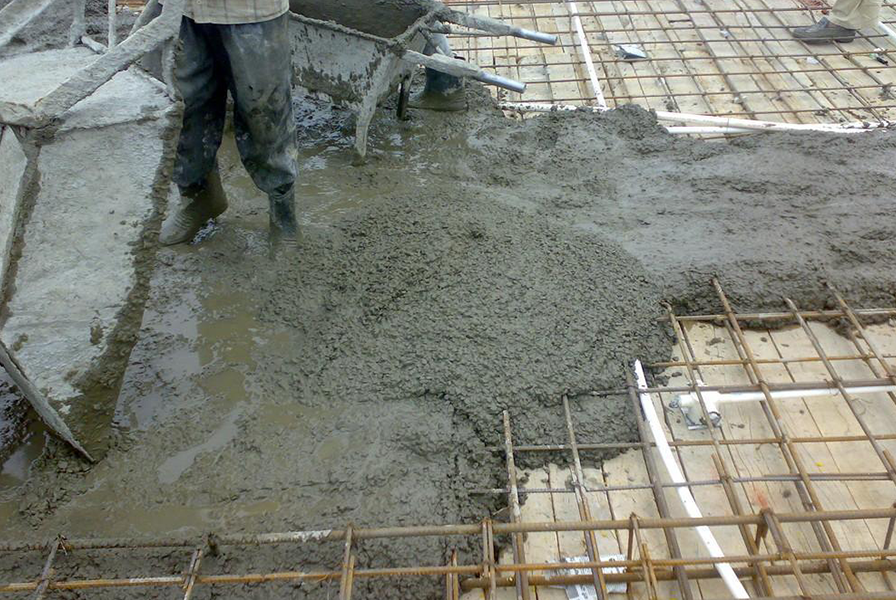
Starting at now, developers across the country are thinking about a massive unsold inventory of more than 7 lakh units being unsold in the top 7 cities alone. How does a real estate developer make his mark in today’s dynamic property market where everybody is attempting to offer?
Real estate development may appear to be minimal more than laying down brick and mortar to develop a massive concrete structure. It might appear to be a business that anybody can and most likely ought to enter, especially considering the massive unmet housing demand in India.
Nothing could be further from reality - land advancement is an intense business; and however the entry barriers have reduced after some time, the complexities in the area have expanded complex.
The 7 Hallmarks of Success:
1. Understanding that it’s still always about location
Area is the most basic achievement part for any real estate development. Indeed, even the humblest of little estimated ventures with the barest least of offices and pleasantries will discover takers in the event that they are in areas with adequate social foundation and great multi-nodal transport availability. The fanciest modern apartment high-rise will fall flat if the location doesn't work. A real estate developer needs to calculate this fact. He also needs to have a firm grasp of planned and proposed infrastructure upgrades in the area, and whether they sync up to the project’s development timelines.
2. Exact Market Evaluation
Notwithstanding evaluating the area as in terms of connectivity and social infrastructure, a developer also needs to study the exact demand profile, the competition ventures, and the advancement design in and around the area. What works in a single city/district may not work in another.
3. Avoiding plagiarism
One of the worst mistakes a developer can commit is to merely replicate other projects that the catchment offers. One specific undertaking's prosperity does not really break even with progress for comparative activities which offer just the same old thing new. Undertaking execution is a component of various elements including land procurement cost, sales and promoting, an engineer's brand prominence, cost of advancement rights, and so on.
Thinking about these factors, endeavoring to imitate another developer's item in a similar market may not work for all intents and purposes or as far as potential deals. In fact, even self-copying may not work - when a developer duplicates an item which one city welcomed energetically in another city, it can in sometimes fail miserably. Once more, real estate development is highly location-dependent.
4. Guaranteeing brand consistency and reverberation
Any real estate development must reverberate with its potential buyers according to the company’s brand made over some stretch of time. On the off chance that there is a gross confuse, an improvement can come up short. For instance, a developer having some expertise affordable housing projects might find it difficult to attract buyers to a high-end/luxury project, and vice versa. There is a specialty that the brand fits into, and it must not deviate from it.
This is the reason numerous developers who have, before, fabricated a brand for mid-income or high end housing have framed separate organizations for developing affordable housing. By receiving this approach, some luxury developers have made effective successful affordable housing offshoots under the parent mark.
Be that as it may, this is a dubious accomplishment - of precise promoting as well as of skill. The strategies, building, plan, materials, and essential market understanding for extravagance lodging are altogether different from those of mass lodging.
5. Making the correct buzz
Making the overall population - and consequently potential purchasers - mindful of another proposed improvement is a key achievement fixing with regards to inevitable sales. A detailed marketing plan must be drafted to make the correct sort of clamor at simply the correct decibel levels and to only the correct sorts of gatherings of people. Designers who still depend exclusively on customary disconnected advertising and absence of comprehension of advanced showcasing media can't succeed any longer.
6. Strategically leveraging local expertise
When a developer ventures beyond his accustomed borders, it is always advisable for him to tie-up with local majors for any real estate development in their territory. This not just conveys the nearby know - how to the table but also helps reach out to potential buyers, as strong local majors already have a good hold on the market. Many developers who had previously ventured out of their territories on their own without forging the right partnerships and without creating enough market buzz and brand recognition have faced serious disappointment.
7. Emphasizing transparency
Transparent business activity isn't just the best procedure in the post-RERA time - it's the main system which will work, and not considering it important can potentially land a developer in hot waters. RERA is as yet a moderately new marvel and is yet to achieve a few sections of the nation. In any case, homebuyers are very mindful of the way that it exists, and why it exists. Property buyers have been dealing with unscrupulous fly-by-night players for a long time and their tolerance for ambiguity is now down to zero.
Legitimate and straightforward developers can and will succeed, however the individuals who attempt to 'play the market' won't. The reputation of both fair and unscrupulous developers spreads by word-of-mouth as well as over the digital information highway in various consumer forums, which anyone looking to buy a property can and will access.
The 7 Hallmarks of Failure:
The components that outcome in failed real estate projects can be many, but if we study the recent stories of failure closely, we can separate the seven most basic mistakes:
- Ignoring the all-important location factor:
Real Estate Development into location which are lacking of necessary support infrastructure with no quick probability of it getting conveyed.
- Following the herd:
Starting projects in small scale areas which as of now have excessively supply.
- Launching without sufficient capitalization to complete projects:
A genuine downside in the event that one likewise does not have a set up track record and in this way employs no clout with banks and other budgetary establishments.
- Excessive focus on land aggregation
Just because the land was cheap at some point - primarily to drive up the company’s valuation, with no focus on actual project execution.
- Diversifying into non-core businesses
And diverting funds meant for real estate projects to these ventures. Broadening is a good thing if it starts from a strong base and is backed by the right intent – many of India’s largest players are well-diversified. In any case, if diversification only equivalents redirection and that's it, it will reverse discharge
- Failing to undertake micro-location research
Investing no exertion in endeavoring to comprehend the item typology which is in most astounding interest, and just building up a similar item blend that had already succeeded
- Failing to innovate
Trying to replicate a housing model that worked well previously, without checking how the competition is innovating and what customers expect now
Write your comments





